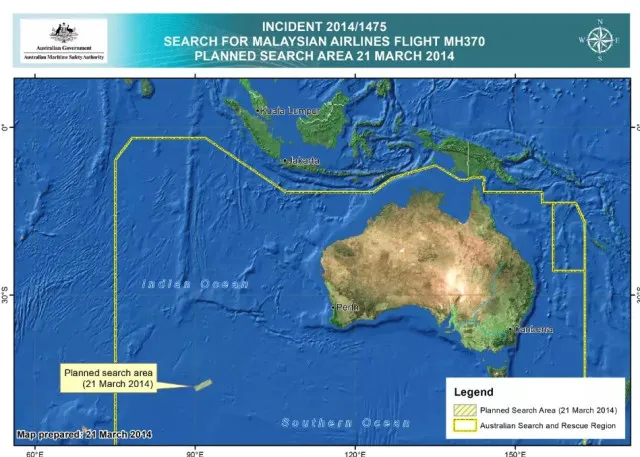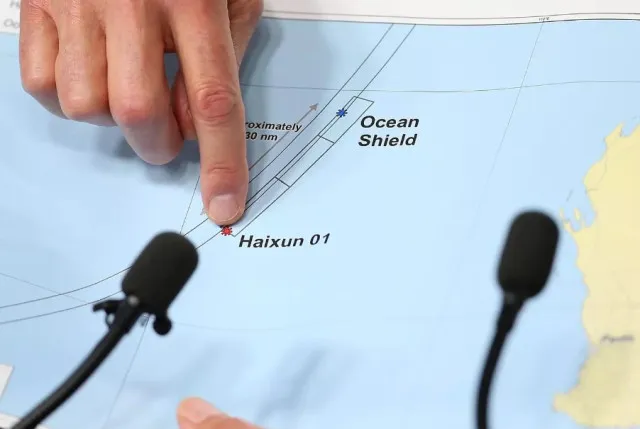Australian scientist Vincent Lyne has made a groundbreaking claim about the missing Malaysia Airlines flight MH370.
Flight MH370 disappeared on March 8, 2014, while en route from Kuala Lumpur. The flight was carrying 239 people, including 227 passengers and 12 crew members.
In a recent research paper, Lyne suggests he has identified the ‘perfect hiding place’ for the aircraft, which vanished over a decade ago.
The ongoing mystery of MH370

Despite numerous search efforts and the discovery of debris presumed to be from MH370, the aircraft itself has never been located.
The disappearance of MH370 has been shrouded in mystery and speculation. These various theories propose different scenarios for the plane’s final location.
However, the disappearance of MH370 remains unresolved.
Vincent Lyne’s research on the missing MH370
Vincent Lyne, who works at the University of Tasmania’s Institute for Marine and Antarctic Studies, has recently had his research paper accepted into the Journal of Navigation.

Additionally, the paper is titled “Final Two Communications from MH370 Suggest Controlled Eastward Descent.”
In his paper, Lyne presents new findings that suggest the plane was deliberately crashed.
Lyne’s research proposes that MH370’s disappearance involved a highly controlled descent into the Southern Indian Ocean.
According to Lyne, the plane’s right wing struck a wave, preventing what he describes as a near-perfect disappearance.
In addition, the research revealed the importance of the regular satellite communications discovered by Inmarsat.
These communications played a crucial role in tracing the aircraft’s path.

Vincent Lyne’s theories on what happened to MH370
Lyne argues that the damage to MH370’s wings, flap, and flaperon indicates a controlled ditching maneuver.
While, he compares this to the successful emergency landing executed by Captain Chesley “Sully” Sullenberger on the Hudson River in 2009.
He supports this theory with a detailed analysis of the debris.

This analysis reinforces the claim that the plane had fuel and functioning engines during the ditching process.
Vincent Lyne also proposed a location for MH370
Lyne’s research identifies a specific location for MH370’s final resting place.
He points to a deep, 6,000-meter hole at the eastern end of the Broken Ridge. This region is characterized by rugged terrain and challenging ocean conditions.

This area, known for its wild fisheries and new deep-water species, presents a perfect hiding place due to its steep sides and fine sediments.
Lyne believes this location is where MH370 lies. However, he acknowledges that verifying this will require a concerted effort from officials and search companies.
According to Lyne, previous searches failed because they did not focus on this specific area.
Additionally, Vincent Lyne’s research presents a new perspective on the mystery of MH370’s disappearance.
It suggests a deliberate and controlled ditching in a remote and challenging part of the ocean.

While further verification is needed, Lyne’s findings offer a promising lead in the ongoing quest to uncover the fate of flight MH370.